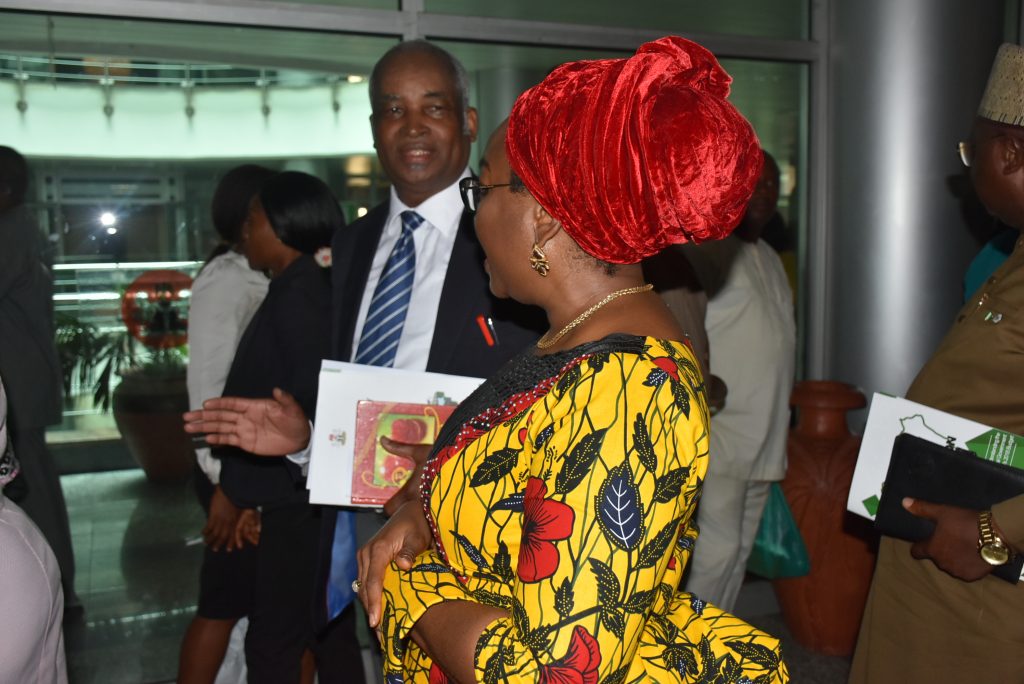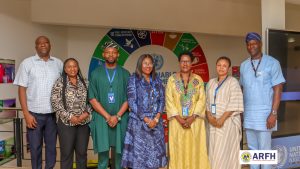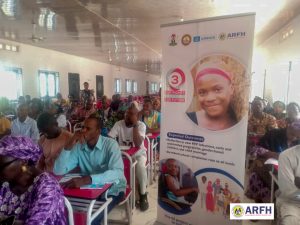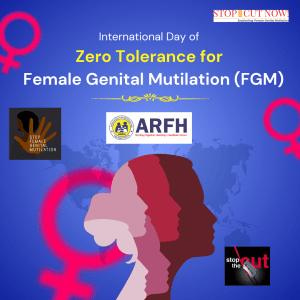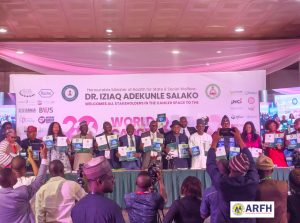
Nigeria’s Ministry of Budget and National Planning convened a meeting yesterday, June 21, 2018 for a public presentation of the approved 2018 Budget of the Federal Government of Nigeria at the Ministry of Foreign Affairs. The presentation was led by the Honorable Minister of Budget and National Planning, Senator Udoma Udo Udoma, who expressed commitments over the prospects of the 2018 Federal Budget, emphasizing its importance as one of the major instruments for implementing the Nation’s Economic Recovery and Growth Plan (ERGP).
In attendance were the Minister of Finance, Mrs Kemi Adeosun, Minister of state for Budget and National Planning, Hajiya Zainab Ahmed, Head of the Civil Service of the Federation, Mrs. Winifred E. Oyo-Ita, Minister of Information & Culture, Alhaji Lai Mohammed and the Director General of Budget Office of the Federation, Mr Ben Akabueze.
It would be recalled that President Buhari signed the 2018 Budget Appropriation Act into law on June 20,2018, noting that the total budget of about N9.12 trillion is designed to consolidate the achievements of 2016 Budget of Change and 2017 Budget of Recovery and Growth to deliver on Nigeria’s Economic Recovery and Growth Plan 2017-2020.
The three key priority areas of focus of this budget is infrastructural development, security and human development as shown in the capital and recurrent expenditures allocation table below:
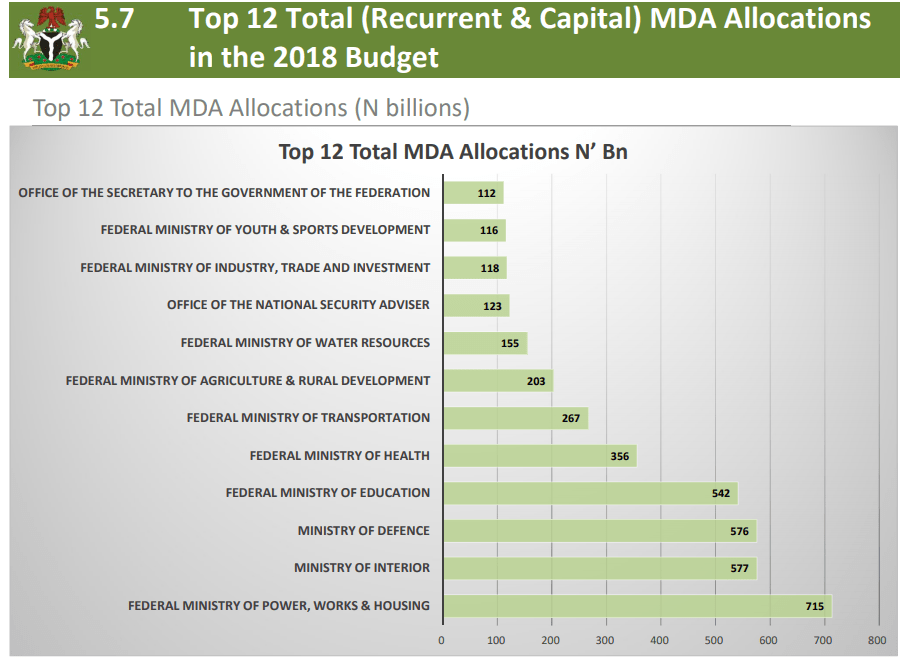
Senator Udoma gave the assurance that the present government is dedicated to making improvement in the health sector, and has taken great steps to fulfill commitments made. Such commitments include the provision of N55.15 Billion for the implementation of the National Health Act (which was an integral part of the 1% Consolidated Revenue Fund for health) and N8.9 Billion for the procurement of RI vaccines and devices.

The Minister, Senator Udoma, stated that the Federal Government will borrow N1.6 trillion to finance part of the N9.12 trillion 2018 budget. Giving a breakdown of the allocations, capital expenditure would gulp 31.5 percent of the total expenditure at N2.87 trillion, which is more than N2.36 trillion allocated in 2017. Recurrent non-debt spending would rise from N2.99 trillion in 2017 to N3.51 trillion in 2018. Senator Udoma said N793 billion would be borrowed domestically, while N849 billion would be borrowed from foreign sources to finance the budget deficit. The overall budget deficit of N1.950 trillion in the budget represented 1.74 percent of the Gross Domestic Product (GDP).
ARFH’s President, Professor Oladapo Ladipo who was also present at the meeting raised concerns over funding in the health sector. He noted that Nigerian’s health sector is at a disadvantage and that adequate funding is required to ensure that Nigeria does not continue to loose many women during childbirth from preventable causes. He also drew attention to Nigeria’s rising population, noting that the country’s population has grown from 11million in 1914 when we amalgamated to 198million in 2018 which is 18 fold over this period. “Our greatest asset in this country is human resources not oil, we must invest heavily through the Ministry of Health in partnership with development partners to moderate the country’s population“, says Prof. Ladipo.
Senator Udoma reiterated that the federal government is committed to improving the health sector and is working with the Ministry of Health to revise the National Population Policy. He however noted that health is a joint responsibility of both the federal and state governments, calling on Nigerians to challenge their state government to also implement their funding.
